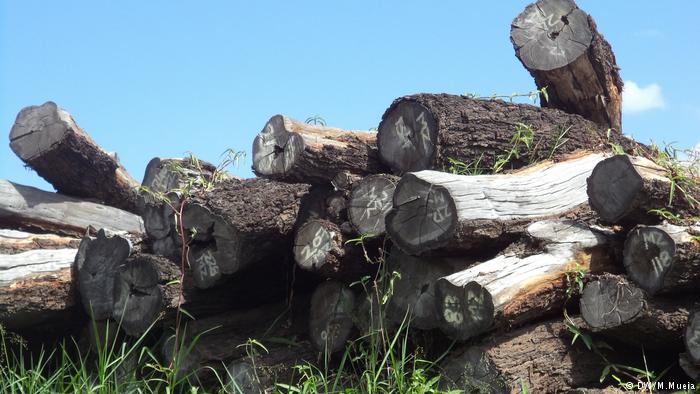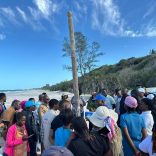Conservation Community of Mozambique calls for 'immediate and decisive investigation and response' ...
Who is responsible for smuggling timber in Mozambique?

DW
Statements made by President Filipe Nyusi raised eyebrows during his visit to Zambézia earlier this month when he accused rangers and other local officials of turning a blind eye to the plundering of timber in the province.
The president even said he suspected forest-related entities of being directly involved in smuggling.
“Do not you see what you are doing? Or are your eyes closed with money? How is it that timber stolen from the forest and arrives at the port of Quelimane without being intercepted?” he demanded to know.

The president reminded his audience that Mozambique was losing millions in revenue through timber smuggling.
“It is necessary to prevent a small group from becoming rich to the detriment of the majority of Mozambicans,” he added: “I am even ashamed when I visit these countries and they say, ‘How is the situation in your country? This wood, which we bought there at a thousand meticais (EUR 140 euros), costs millions of dollars here.’ I pretend not to know anything.”
The orders “come from above”
The Provincial Directorate of Agriculture of Zambézia, responsible for the forest rangers, has not commented on President Nyusi’s statements, referring instead to the success of ‘Operation Tronco’ at the beginning of the year, when Mozambican authorities seized more than 150,000 cubic meters of illegal timber in six provinces, including Zambézia.
Meanwhile, Angelo Amaro, executive director of the nongovernmental organization Kukumbe, says that the plundering of natural resources is not the fault of the forest rangers. The orders come from above, Amaro says.
“The president should not say this. The minister gives orders through phone calls for the timber to go through to the port of Beira, for example. The president knows exactly what is happening.”
Success in fighting clandestine logging

Amade Naleia, representative of the Zambezia Non-Governmental Organisations Forum (FONGZA), adds that there have been improvements in recent months, and that the illegal cutting and sale of timber has decreased significantly with the intervention of civil society organisations.
There are still obstacles, however. “We are often surprised. We intercept a trafficker with a lot of wood on his truck, and when we tell the authorities two or three days later we see that the wood and the truck are no longer there and the owner has disappeared. Then, we just do not know what is going on,” he explains.












Leave a Reply
Be the First to Comment!
You must be logged in to post a comment.
You must be logged in to post a comment.